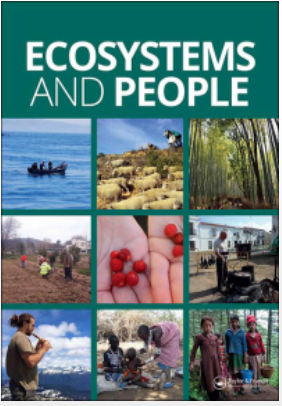Embracing complexity in landscape management: Learning and impacts of a participatory resilience assessment
IF 3.7
Q1 Agricultural and Biological Sciences
引用次数: 4
Abstract
ABSTRACT Landscapes and their management are at the center of many of the sustainability challenges that we face. Landscapes can be described as social-ecological systems shaped by a myriad of human activities and biophysical processes, interacting across space and time. Managing them sustainably requires considering this complexity. Resilience thinking offers ways to address complexity in decision-making. In this paper, we analyse the learning and impact on a diverse group of local actors from participating in a participatory resilience assessment. The assessment, focused on sustainable landscape management in the Helge å catchment, Sweden, produced concrete knowledge outputs, describing ecosystem service bundles, a future vision, conceptual system models, and a strategic action plan. Follow-up interviews indicate that the process and its outputs supported the participants’ learning process and helped them to articulate complexity thinking in practice. The outputs, and the exercises to produce them, emerged as complementary in supporting this articulation. Furthermore, they helped build participants’ capacity to communicate the diverse values of the landscape to others and to target leverage points more strategically. Thus, it supported the application of resilience thinking in landscape management, especially by generating learning and fostering complex adaptive systems thinking.拥抱景观管理的复杂性:参与式恢复力评估的学习和影响
景观及其管理是我们面临的许多可持续发展挑战的核心。景观可以被描述为由无数人类活动和生物物理过程形成的社会生态系统,它们在空间和时间上相互作用。可持续地管理它们需要考虑到这种复杂性。弹性思维提供了解决决策复杂性的方法。在本文中,我们分析了参与参与式复原力评估对不同群体的地方行动者的学习和影响。评估的重点是瑞典Helge 流域的可持续景观管理,产生了具体的知识产出,描述了生态系统服务包、未来愿景、概念系统模型和战略行动计划。后续访谈表明,该过程及其产出支持了参与者的学习过程,并帮助他们在实践中表达复杂性思维。输出,以及产生它们的练习,在支持这种衔接中作为补充而出现。此外,他们还帮助参与者建立了与他人沟通景观不同价值的能力,并更有战略地瞄准杠杆点。因此,它支持弹性思维在景观管理中的应用,特别是通过产生学习和培养复杂的适应性系统思维。
本文章由计算机程序翻译,如有差异,请以英文原文为准。
求助全文
约1分钟内获得全文
求助全文
来源期刊

Ecosystems and People
Agricultural and Biological Sciences-Ecology, Evolution, Behavior and Systematics
CiteScore
7.80
自引率
11.30%
发文量
40
审稿时长
42 weeks
期刊介绍:
Ecosystems and People is an interdisciplinary journal that addresses how biodiversity and ecosystems underpin human quality of life, and how societal activities and preferences drive changes in ecosystems. Research published in Ecosystems and People addresses human-nature relationships and social-ecological systems in a broad sense. This embraces research on biodiversity, ecosystem services, their contributions to quality of life, implications for equity and justice, and the diverse and rich ways in which people relate to nature.
 求助内容:
求助内容: 应助结果提醒方式:
应助结果提醒方式:


